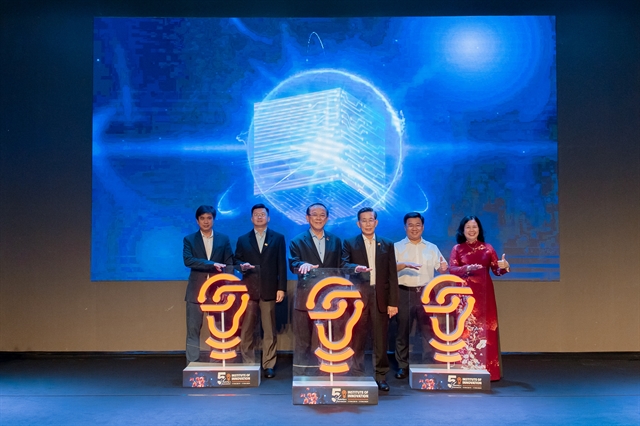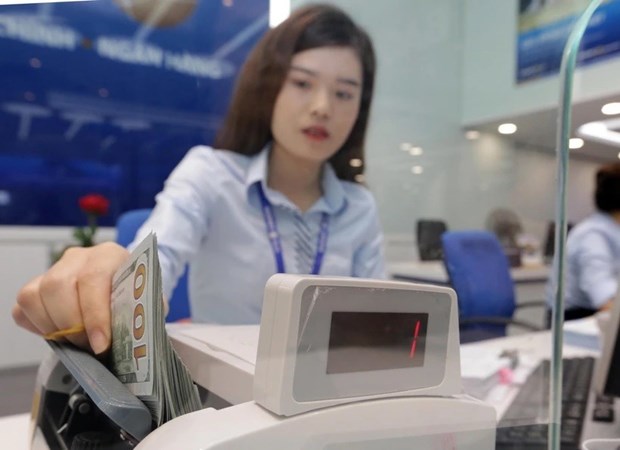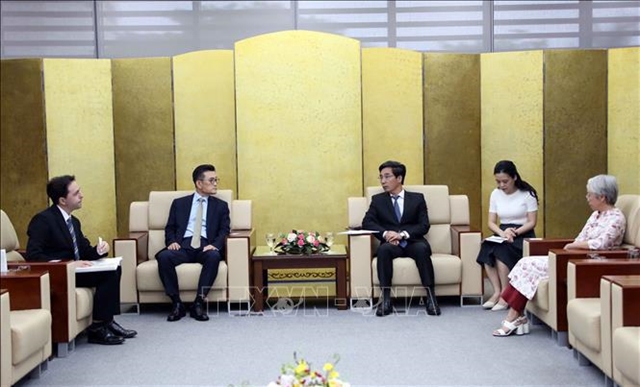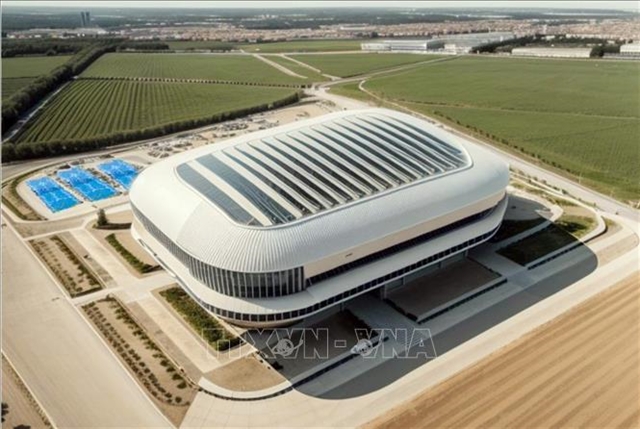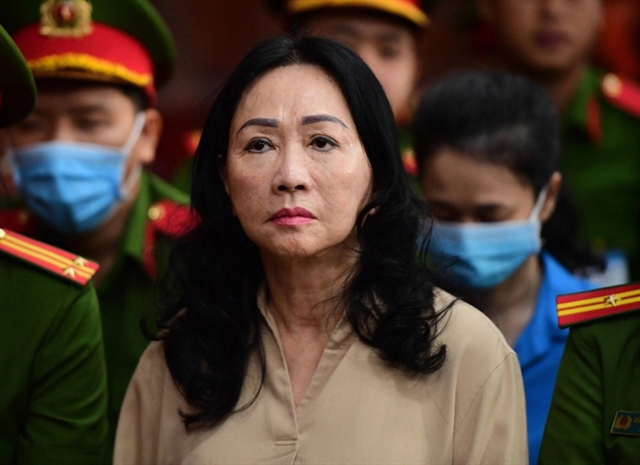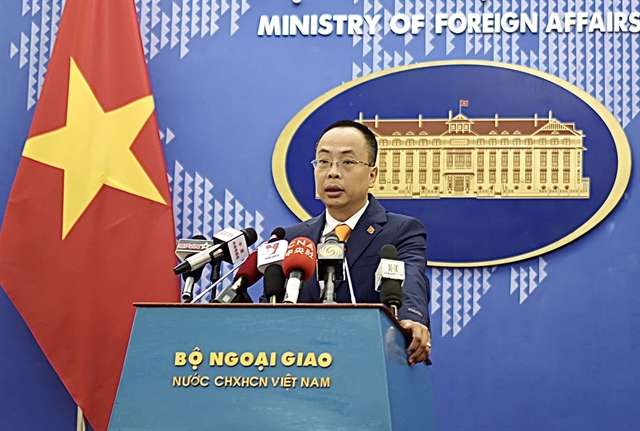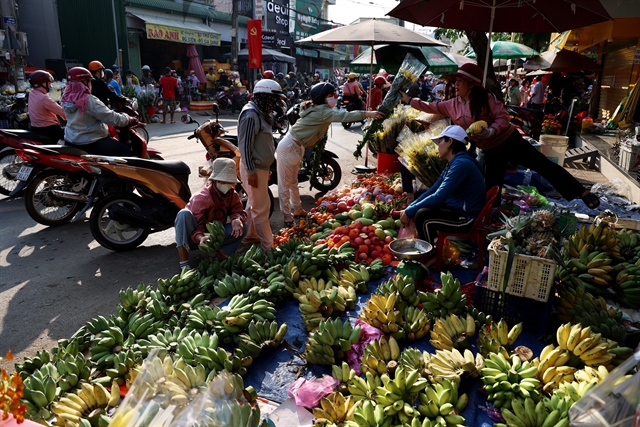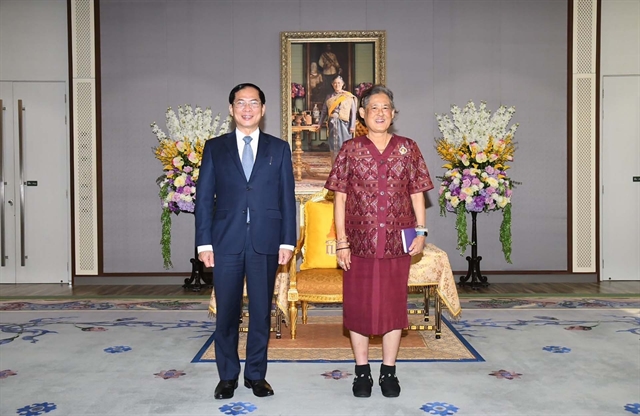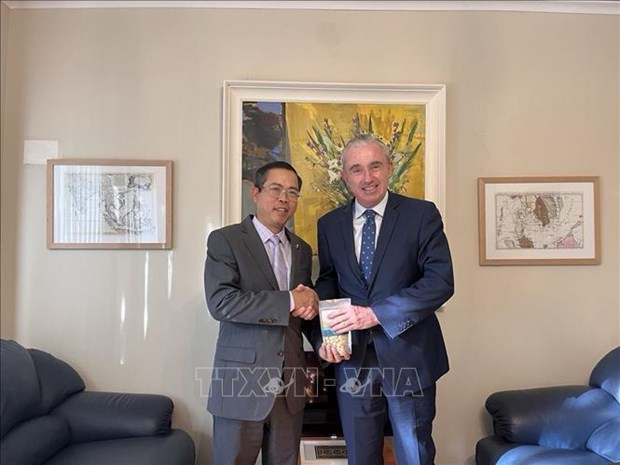 Politics & Laws
Politics & Laws

Member states' audit offices pledged commitments to sustainable development via promoting environmental audits and stronger anti-corruption measures.
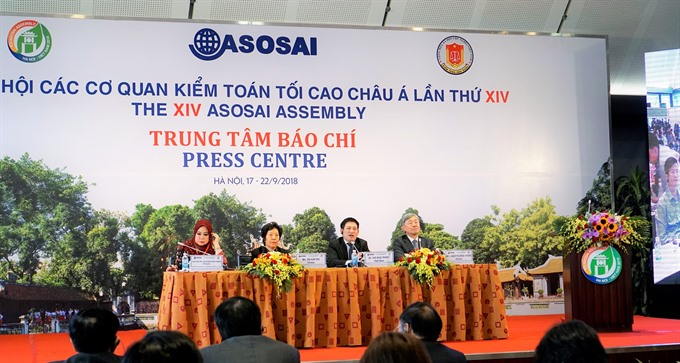 |
| Vietnamese Auditor General Hồ Đức Phớc (second from right) responded to media questions during a press conference on the conclusion of the Asian Organisation of Supreme Audit Institutions 14th assembly held in Hà Nội during September 19-22. — VNS Photo Trọng Kiên |
HÀ NỘI — Auditor General of the State Audit of Việt Nam (SAV) Hồ Đức Phớc has vowed to take concrete actions to foster co-operation within the Asian Organisation of Supreme Audit Institutions (ASOSAI) to bring into play the potential of its members.
Environmental issues were becoming a serious threat to the growth of each country, making environmental audits more important, said the new ASOSAI chairman, referring to the theme of the 14th ASOSAI Assembly.
The SAV would step up environmental audits and strengthen operation audits to assess the management and use of resources and environmental protection of State agencies, Phớc told a press conference in Hà Nội on Saturday, following the conclusion of the assembly.
After four days, the Asian Organisation of Supreme Audit Institutions (ASOSAI) concluded its 14th assembly on September 22, with the ratification of the Hà Nội Declaration as the main outcome.
The declaration stressed 46 member State audit agencies’ commitment towards promoting environmental audit as its contributions to the achievement of the United Nations’ Sustainable development agenda.
“We, once again, reaffirm our desire to harmonise economic growth with sustainable development,” the declaration reads, citing worsening climate change and pollution that threaten humanity and undermine its advancements.
Assessing the readiness of national systems on reporting on the progress towards the UN sustainable development goals (SDGs), examining efficiency and effectiveness of “key governmental programmes that contribute to different aspects of SDGs,” and boosting transparency and accountability in operations are a number of “good governance and strengthening anti-corruption” measures that member SAIs agreed upon in pursuit of the UN agenda.
The declaration also seeks to promote knowledge sharing and capacity enhancements via stronger co-operation amongst ASOSAI members and with external parties. Intensive training courses on environmental audit, online portals to gather countries’ experience on environmental audits, as well as developing regional reports on environmental auditing are activities the Asian supreme audits institutions want to carry out.
The theme of environmental audit, one of the weaknesses of ASOSAI 14 host country Việt Nam’s public audit sector, was chosen as a way of showcasing its earnest wish to learn and co-operate with other countries to create standard guidelines and build up Vietnamese auditors’ capacity in this important field.
Successful deliverables
The declaration was adopted in the 2nd plenary session of ASOSAI on September 22, presided over by ASOSAI Chair for the term 2018-21, State Auditor General of Việt Nam Dr. Hồ Đức Phớc, and former ASOSAI Secretary General Choe Jaehyeong.
During the session, delegates elected the SAIs of Indonesia, Russia, Kuwait, Nepal and Bangladesh to the Governing Board of ASOSAI for the term 2018-2021.
The session recognised Palestine’s SAI as a new ASOSAI member; designated ASOSAI training centres in China, India, and Malaysia; and transferred the role of ASOSAI Secretary General from the Republic of Korea (RoK) to China.
One of the contents for discussion during the session was the goal of professionalisation of the ASEAN Supreme Audit Institutions (ASEANSAI). On this topic, ASEANSAI Chairperson Viengthong Siphandone, who is President of Laos’s State Audit Organisation, said the goal has been included in ASEANSAI’s strategic plan in 2018-2021.
ASEANSAI aims to become a self-controlled, independent, professional and non-political organisation, which will help develop capacity and enhance collaboration among its members, thus establishing constructive relationships to benefit ASEAN and other stakeholders, he said.
Thailand will host the next Assembly of ASOSAI in 2021. At the 53rd meeting of the ASOSAI Governing Board, President of Thailand’s State Audit Commission Chanathap Indamra affirmed ASOSAI is an open community, and co-operation among ASOSAI members is key to achieve the overall goal of promoting and enhancing experience in terms of public audit
During the press conference held later in the day, former chair of ASOSAI (2015-18 term), Malaysia Auditor General Dr Madinah Binti Mohamad congratulated Việt Nam on successfully hosting the event and expressed her “every confidence” that the Vietnamese Auditor General will be an excellent chairman for ASOSAI in the next three years, who will “propel ASOSAI to new heights, under his leadership.”
She also pledged to continue capacity building programmes for Vietnamese auditors, especially in terms of environmental audit.
The 14th assembly of ASOSAI, held during September 19-22 in Hà Nội, was the largest gathering, attracting 400 delegates from 79 foreign institutions.
On the sidelines of ASOSAI 14, Vietnamese Auditor General Phớc held talks with his Chinese counterpart, Hu Zejun, where the two pledged to work together to fulfill the roles of chair and secretary general of ASOSAI for the term 2018-21.
The Vietnamese official also asked for China’s experience with environmental audits, especially regarding the application of ICT, including remote sensing with geographic information systems and big data, to gain more accurate results on the environmental impacts of projects using State budget. — VNS
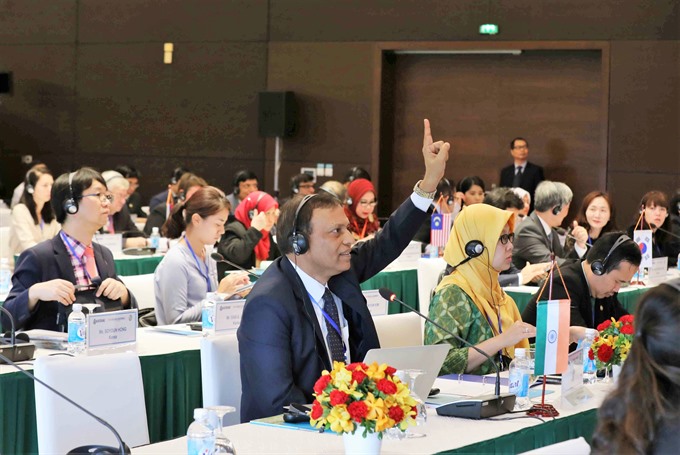 |
| The 53rd meeting of the ASOSAI Governing Board held on September 22 in Hà Nội. — VNA/VNS Photo |

